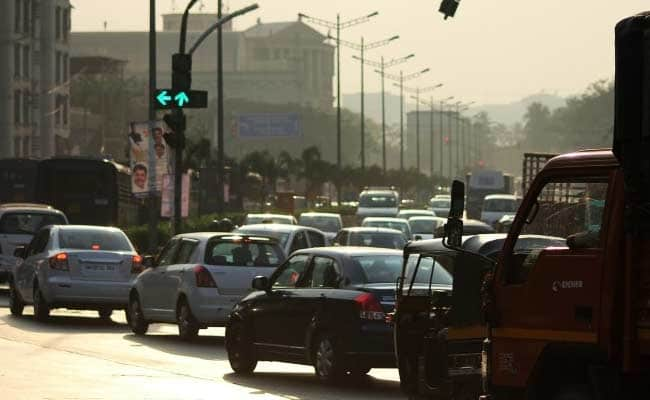Gurugram: Students at Shiv Nadar School have developed an ‘intelligent traffic light’ system which they say may not only help reduce commute time but also lower air pollution. The system created by four Grade 11 students, Shreya Raju, Om Shelat, Ira Sidhu and Soumya Juneja, makes the existing traffic light system responsive to real-time traffic intensity. It is the first system meant to work on Indian roads and will function accurately keeping in mind the traffic situation in the country, according to a project paper written by the team.
“Based on our research, we found that most traffic signals work on preset algorithms and timers that are probably customised for each junction but stay static once configured,” Shelat, one of the students, told PTI. “On close observation, we realised that the lopsided nature of the traffic leads to a large portion of the time of the commuters being wasted at each junction,” Shelat said. “Using a simple camera and a microcontroller, we now have a way to calculate the amount of traffic present on the road using a camera and then modify the red/green distribution time at each junction dynamically,” he said.
As per a recent report released by The Boston Consulting Group, commuters in Delhi, Mumbai, Bengaluru, and Kolkata spend 1.5 hours more than their counterparts in other Asian cities during peak traffic times, the students wrote in the paper. Vehicles are a major contributor to air pollution but after the implication of our project, commuters will spend less time on the roads as compared to earlier due to primitive traffic management system, according to the paper. The best part about the innovation is that it is compatible with the existing traffic lights, thus cutting down the costs and time required for implementation, the students said. The system will cost only Rs 20,000 as compared to Rs eight lakh spent on other systems, they said.
A prototype has been developed and tested in live traffic conditions. It has also been approved for a longer trial by the local authorities, the students said. This system uses a camera to sense the changing traffic patterns around by capturing an image. The captured image is then sent to a microprocessor, which uses image processing and edge detection algorithms to detect edged black and white pixels. By various real-time observations and analysis under different traffic density scenarios, the students determined the amount of maximum and minimum time required for different traffic densities to clear.
“This ensures that we don’t waste any time at junctions and when scaled to the city level, it would work towards ensuring that we reduce the fleet time for each commuter automatically,” Shelat said. “We are proud of our students for developing a project like the Intelligent Traffic Light Management system, wherein they have solved the real-life problem of traffic congestion using technology,” said Monica Sagar, Principal, Shiv Nadar School. “As part of the Robotics and IT (Information Technology) classes in school, the students were introduced to the concepts of microcontrollers and image processing systems. It was great to witness how they translated classroom knowledge to solve a real-life problem,” Mark Nelson, Project Lead – IT at Shiv Nadar School added.
Also Read: Haryana Goes Digital To Fight Unclean Surroundings, Develops A Swachh Mobile App
Air pollution has a very negative impact on an individual’s health and with the increasing vehicles; this problem is going to get worse, the students said. This reduction in time spent on the road will result in a decrease in the number of pollutants released by the cars and thus, reducing air pollution, they said. “The idea has also been applauded by the government at the recently concluded CSIR (Council of Scientific & Industrial Research) Innovation Award for School Children-2018, where the students bagged the fifth prize,” said Ms. Sagar.
NDTV – Dettol Banega Swachh India campaign lends support to the Government of India’s Swachh Bharat Mission (SBM). Helmed by Campaign Ambassador Amitabh Bachchan, the campaign aims to spread awareness about hygiene and sanitation, the importance of building toilets and making India open defecation free (ODF) by October 2019, a target set by Prime Minister Narendra Modi, when he launched Swachh Bharat Abhiyan in 2014. Over the years, the campaign has widened its scope to cover issues like air pollution, waste management, plastic ban, manual scavenging and menstrual hygiene. The campaign has also focused extensively on marine pollution, clean Ganga Project and rejuvenation of Yamuna, two of India’s major river bodies.




























